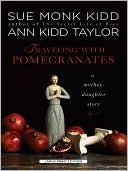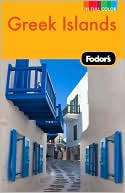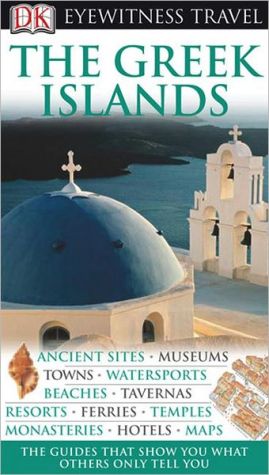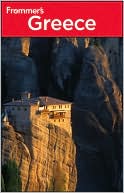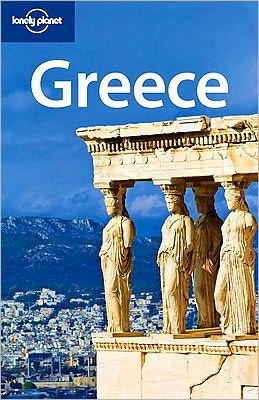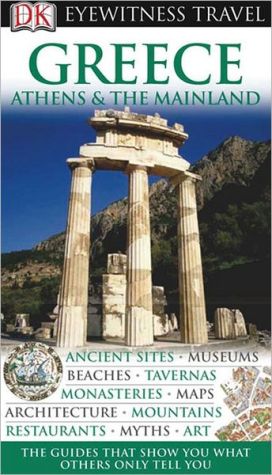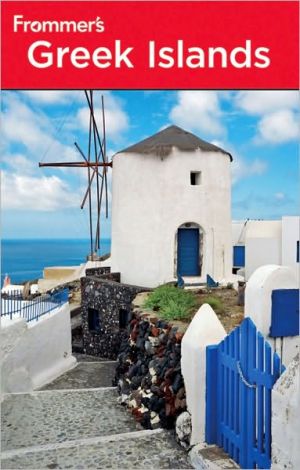Dinner with Persephone: Travels in Greece
A New York Times Notable Book of the Year\ "Full of insights, marvelously entertaining . . . haunting and beautifully written."\ —The New York Review of Books\ "I lived in Athens, at the intersection of a prostitute and a saint." So begins Patricia Storace's astonishing memoir of her year in Greece. Mixing affection with detachment, rapture with clarity, this American poet perfectly evokes a country delicately balanced between East and West.\ Whether she is interpreting Hellenic...
Search in google:
This New York Times Notable Book of the Year captures an American poet's travels in the country that bridges East and West. Publishers Weekly An American poet describes a nation poised between pop culture and its mythic past. (Sept.)
\ Publishers Weekly - Publisher's Weekly\ An American poet describes a nation poised between pop culture and its mythic past. (Sept.)\ \ \ \ \ Library Journal"I lived in Athens, at the intersection of a prostitue and a saint," says Storace in what will probably be the most quoted line in book reviews this fall. Storace, a poet (Heredity, LJ 5/1/87) and contributor to the New York Review of Books, moved to Athens for a year of thoughtful reflection that resulted in this fine, absorbing book. Able to speak Greek, Storace moves easily around the city, relating little details of Athenian life and custom ("there is a balcony etiquette I must master," "the Greeks scowl theatrically, implacably, since a smile is not considered an impressive facial expression") and just as easily through Greek history and culture, revealing a breadth of learning that is impressive. The result is neither travelog (though we get plenty of vivid details, like the "glowing lemon" falling like a star on her dining table) nor memoir (though the book is enriched with Storace's personal insights) but a fine cultural study of a country whose magnificent past contrasts painfully with contemporary surliness, embattled pride, and a violence toward women that Storace remarks on throughout. This is the sort of book that defines the pleasure of reading. Highly recommended.Barbara Hoffert, "Library Journal"\ \ \ Kirkus ReviewsPoet and essayist Storace creates a lively, richly textured, anecdotal synthesis of the glorious—and inglorious—modern Greece.\ Fending off aggressive Greek men, negotiating with near-comic bureaucracies, visiting the spectacular Greek islands, Storace insinuates herself into quotidian Grecian life—all the while recording a wryly perceptive impression of the land of constant disputation and anomaly. She finds a people who speak of Alexander the Great in the present tense and who blame Coca-Cola for stealing the Olympic Games. Distressing for Storace is the pervasive subordination of women (TV programs, she notes, frequently feature knocking women about as a prelude to love-making); yet the society is also one of maternal worship, and Storace encounters a surprising tolerance for transvestism. Beyond its sexual contradictions, however, Storace perceives a counterintuitive cultural layering, a people whose seemingly conflicting Classical, Roman, Byzantine, and Ottoman influences survive in unremarked combination. (Writing of the language from hymns heard at a Lenten ceremony honoring the Virgin: "Like Persephone, Mary is a divine bride, like the Demeter of the Orphic hymns, she is . . . the divine nursing mother . . . like Hecate, Athena and Tyche, she is the defender of a city.") Added to this book's wide breadth of history, philosophy, and language are intimately drawn portraits of the countryside and its inhabitants. Storace cruises to the islands of myth, such as Andros and Naxos; visits cemeteries with life-size stone tableaux; attends a lavish wedding (noting that she can never be married in the Greek sense, the word for "marriage" being pandremeni, or "to be under a man"); and hikes into the northern province of Epirus, made famous by Lord Byron, where she finds "the countryside is crystalline, the trees full of language in the form of muttering bees."\ This is not a book to be quickly devoured, demanding instead reflection and appreciation, but the payoff, in its lush prose, wealth of history, and sly commentary, is well worth it.\ \ \

